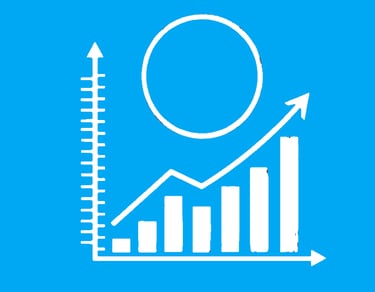Empowering researchers to achieve more
Impact of Automatisation and Digital Innovation on Productivity and Economic Performance
Impact of Automatisation and Digital Innovation on Productivity and Economic Performance. The economic performance and productivity effects of automation and digital innovation manifest in various dimensions across different sectors.
Rose M. DIMASSI PhD
6/25/2025


The economic performance and productivity effects of automation and digital innovation manifest in various dimensions across different sectors. Automation and digital innovation are crucial elements in transforming industries and national economies by enhancing productivity, improving operational efficiency, and reshaping traditional business models.
1. Impact on Labor Markets and Productivity: Automation technologies, which substitute capital for labor in a widening range of tasks, create a positive productivity effect through cost reduction. However, they also pose challenges such as reducing employment opportunities for workers displaced from automated tasks (Restrepo 2024). While automation has led to a 25% increase in labor productivity, it has also contributed to a 12% rise in income inequality, demonstrating both potential and challenges (Almusharraf 2025).
2. Economic Transformation through Digital Technologies: Digital transformation acts as a catalyst for economic change across various sectors, including healthcare and manufacturing. The digital economy fosters innovation, enhances productivity, and supports sustainable development by integrating digital technologies into economic practices. This transformation requires strategic planning and policy support to navigate the complexities of digital adoption (Kaggwa et al. 2023).
3. Industry-Specific Advances:
In the construction industry, the adoption of Industry 4.0 technologies such as Building Information Modelling, virtual reality, and drones enhances productivity by improving the construction value chain and ensuring safe and sustainable practices (Hossain and Nadeem 2019).
In agriculture and waste management, digital innovations like IoT-based precision farming and AI-driven crop monitoring lead to increased productivity and resource optimization, while digital platforms for waste sorting improve recycling rates and waste monitoring (Eshbayev et al. 2024).
4. Digital Economy and Business Models: The digital economy reshapes traditional business models by enabling adaptability, customization, and scalability. Digital platforms allow businesses to enter new markets and optimize operations. The COVID-19 pandemic further accelerated the adoption of digital tools, highlighting their importance in modern business practices (Chubuk and Kyiv 2024).
5. Challenges and Opportunities in Automation and Digital Innovation: While automation and digital innovations offer numerous benefits, they also present challenges such as technological integration, economic barriers, and regulatory issues. Addressing these requires a balanced approach that includes policy development, collaborative efforts between governments and industry, and strategic integration of digital technologies (Gavrila et al., 2023; Javaid et al., 2024).
Overall, automation and digital innovation are driving significant economic and productivity gains across various sectors. However, these technologies also necessitate careful handling of socio-economic challenges to ensure inclusive growth and equitable distribution of benefits. While I cannot provide a full review, this information offers a comprehensive perspective on the topic based on the existing literature.
References
Restrepo, Pascual. 2024. “Automation: Theory, Evidence, and Outlook.” Annual Review of Economics 16 (1): 1–25. https://doi.org/10.1146/annurev-economics-090523-113355.
Almusharraf, Ahlam I. 2025. “Automation and Its Influence on Sustainable Development: Economic, Social, and Environmental Dimensions.” Sustainability 17 (4): 1754. https://doi.org/10.3390/su17041754.
Kaggwa, Simon, Samuel Dawodu, Stephen Eloghosa, Odunayo Akindote, Deborah Akinwolemiwa, and Prisca Uwaoma. 2023. “Digital Transformation and Economic Development: A Review of Emerging Technologies’ Impact on National Economies.” World Journal of Advanced Research and Reviews 20 (3): 888–905. https://doi.org/10.30574/wjarr.2023.20.3.2541.
Hossain, Md Aslam, and Abid Nadeem. 2019. “TOWARDS DIGITIZING THE CONSTRUCTION INDUSTRY: STATE OF THE ART OF CONSTRUCTION 4.0.” Proceedings of International Structural Engineering and Construction 6 (1). https://doi.org/10.14455/isec.res.2019.184.
Eshbayev, Oybek, Amirdjanova Sitora, Khaydarova Umida Pulatovna, Komiljon Xursandov, and Gulnoza Jamalova. 2024. “Advancing Green Technology Systems through Digital Economy Innovations: A Study on Sustainable.” E3S Web of Conferences 576 (January): 02009. https://doi.org/10.1051/e3sconf/202457602009.
Chubuk, L P, and Taras Kyiv. 2024. “IMPACT OF DIGITAL ECONOMY ON BUSINESS MODELS AND FINANCIAL MANAGEMENT: INSTITUTIONALIZATION OF DIGITAL TRANSFORMATIONS.” Economy Management Business 44 (1). https://doi.org/10.31673/2415-8089.2024.010008.
